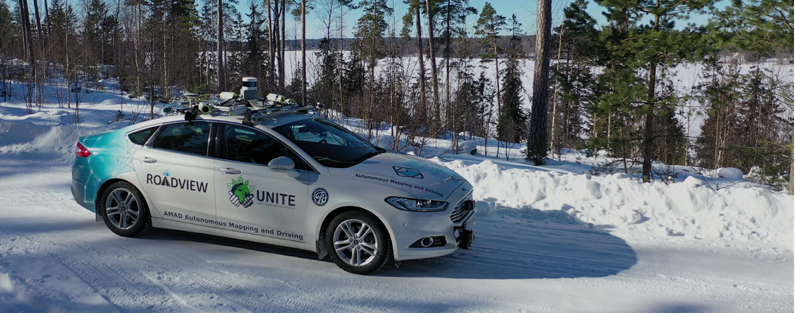Last modified on October 17, 2023

Creating safe and reliable automated vehicles that can adapt to any environmental challenge
The integration of advanced sensors, control systems, and computational sources is crucial for future automated vehicles, to ensure their safety, reliability, and compliance with regulations. Despite progress by the Cooperative, Connected, and Automated Mobility (CCAM) industry in this regard, and the evolution of robotics, most automated vehicles (AVs) remain trained and tested under optimal weather conditions and with clear visibility.
Complex environment and traffic conditions have a major impact on the safety and operations of AVs. Weather affects not only the vehicle performance but also the roadway infrastructure, thereby increasing the risk of collision and traffic scenario variations. To ensure wide acceptance of CCAM, and thus exploit all its benefits, a technology capable of performing equally well under any weather conditions must be developed.
In response to this challenge, the ROADVIEW project, funded through the Horizon Europe programme, is developing a complex in-vehicle system able to perform advanced traffic recognition and prediction under severe weather conditions, such as snow, fog, and rain. ROADVIEW systems will independently perceive the environment conditions and make decisions based on its enhanced sensing, localisation, and improved object and person classification.
Click here to hear from Eren Aksoy, Halmstad University, talking about the ROADVIEW project relevance and impact on society.
ROADVIEW, together with the sister project EVENTS, was funded through one of the first CCAM calls (under CCAM Cluster 2 – Vehicle technologies), specifically addressing the need for powerful and reliable on-board perception and decision-making technologies, capable of handling complex environmental conditions.
The lack of standardisation, and more specifically the current fragmented value chain, still represents a major barrier to the wider adaption of CCAM solutions. The CCAM Partnership provides a forum for all the CCAM EU-funded projects, allowing for knowledge exchange and networking, leveraging on existing data. ROADVIEW’s cooperation with the CCAM Partnership ensures that the perception and decision-making systems developed within the project are compatible with the systems and technology developed within other CCAM projects, as well as with the current regulatory framework, where existing.
Source: The original article published in ROADVIEW first newsletter can be found here


